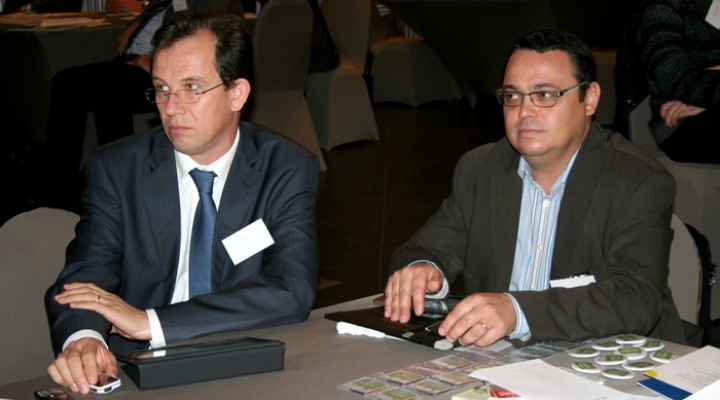The Igen, tessék! / Da, poftiţi! (Yes, please) bilingual movement presented in Brussels
The Svenska Kulturfonden Foundation, that represents the cultural and linguistic rights of the Swedish community in Finland organized on the 13th of November a seminar with the title It's up to the majority in Brussels.
The event, which is at its fifth edition, provided an opportunity for specialists to present issues related to the linguistic rights of traditional minorities and speakers of regional languages. The event saw presentations on the education system in South Tyrol, the bilingual system in Finnish hospitals, the bilingual German and Danish signs in Flensbrug, the bilingual practices of Welsh and Basque phone companies and the Frisian kindergarten language education system.
The event was organized under the patronage of former Finnish president and UN commissioner Martti AHTISAARI who spoke about the reform of Finnish linguistic laws. Finland has the most powerful linguistic legislation in the EU: the Finnish Constitution and Language Law guarantee linguistic rights. Nevertheless, the Swedish Assembly of Finland urged for the reform of linguistic policy in 2010 in order to broaden the linguistic rights of the Swedish speaking community. The committee, led by the Nobel-prize winning politician, finalised its report in 2011, right before the parliamentary elections in Finland. The document urged the winner of the election to improve the usage of both languages and to provide legislation for this by the end of December 2012. The committee called for a well-staffed ministry of linguistic affairs in order to coordinate the activities of other ministries from a linguistic point of view. Local public servants are also required to support the work of the ministry.
At the invitation of DAHR’s MEP Csaba Sógor, university professor dr. István Horváth presented the Igen, tessék! project that aims to promote the public use of Hungarian in large Romanian cities where there are also Hungarians. This is the first time an example of language use from Central and Eastern Europe is presented at the Svenska Kulturfonden’s event. Dr. István Horváth, who is one of the initiators of the project, stated that it is a fortunate coincidence that the project supported by DAHR is presented in Brussels on the Day of the Hungarian Language.
The event was organized under the patronage of former Finnish president and UN commissioner Martti AHTISAARI who spoke about the reform of Finnish linguistic laws. Finland has the most powerful linguistic legislation in the EU: the Finnish Constitution and Language Law guarantee linguistic rights. Nevertheless, the Swedish Assembly of Finland urged for the reform of linguistic policy in 2010 in order to broaden the linguistic rights of the Swedish speaking community. The committee, led by the Nobel-prize winning politician, finalised its report in 2011, right before the parliamentary elections in Finland. The document urged the winner of the election to improve the usage of both languages and to provide legislation for this by the end of December 2012. The committee called for a well-staffed ministry of linguistic affairs in order to coordinate the activities of other ministries from a linguistic point of view. Local public servants are also required to support the work of the ministry.
At the invitation of DAHR’s MEP Csaba Sógor, university professor dr. István Horváth presented the Igen, tessék! project that aims to promote the public use of Hungarian in large Romanian cities where there are also Hungarians. This is the first time an example of language use from Central and Eastern Europe is presented at the Svenska Kulturfonden’s event. Dr. István Horváth, who is one of the initiators of the project, stated that it is a fortunate coincidence that the project supported by DAHR is presented in Brussels on the Day of the Hungarian Language.











